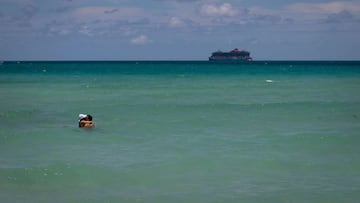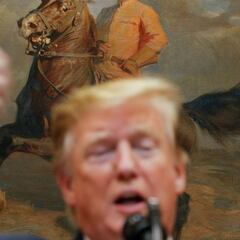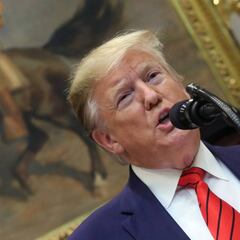$4,000 Travel Tax Credit: proposal for coronavirus aid package for tourism industry
Senator McSally introduces a bill, the TRIP Act, to incentivise domestic travel in the United States.

On the back of calls for an 'Explore America' tax credit, a measure to help the domestic US tourism industry, which has been brutally hit by the coronavirus pandemic, Republican Senator Martha McSally published a bill on Monday called the American Tax Rebate and Incentive Program Act or simply the American TRIP Act.
In line with discussions about the tax credit to help the domestic tourism industry, the measure would give up to a $4,000 tax credit for individuals, being 50% of qualifying travel expenses incurred in the United States. Joint filers would get up to an $8,000 credit, while families would get $500 additionally per dependent child.
The measure would provide for the credits for tax years 2020, 2021 and 2022 - that's actually more generous than the US Travel Association had asked for, with their proposal going up to 31 December, 2021.
Thank you @SenMcSallyAZ for your efforts to support jobs in travel & tourism with the introduction of The American TRIP Act. We look forward to working with Congress on efforts to restart the travel industry, boost the economy and bring back hotel jobs. https://t.co/NahXz30ob6
— American Hotel & Lodging Association (@AHLA) June 23, 2020
Tax credit rules for the TRIP Act
The tax credits would available to all US citizens, but would be 'use it or lose it', you would not be able to roll up the tax credits and use them to get a credit against a $12,000 holiday in 2022 for example.
The tax credit would be non-refundable, meaning if the taxpayer's actual paid taxes were lower than the credit, the IRS would not hand back cash. (The credit might be able to be rolled forward, but that would need to be checked with a tax specialist once the bill has become law).
Given that some 44% of the American population pay no federal income taxes this means they would be excluded from the tax credit.
Eligible expenses for the TRIP Act Travel Tax Credit
The bill sets out the following expenses which can be included in the claim for the tax credit:
- Food and beverages
- Lodging
- Transportation
- Live entertainment events (including sporting events)
- Expenses related to attending a conference or business meeting
Qualifying travel
In order to claim the tax credit, individuals must undertake qualifying travel. That means:
- It occurs within the United States (that includes any territory or possession of the US, so Puerto Rico, US Virgin Islands, Guam, American Samoa and the Northern Mariana Islands are all eligible destinations).
- The final destination must be more than 50 miles away from the main residence of the taxpayer.
- The travel must take place between 1 January 2020 and 31 December 2022 (so a holiday pre-coronavirus pandemic in January 2020 is covered. This doesn't make much sense in terms of incentivising travel to help hard-hit tourism businesses now, and is likely done just for tax year filing purposes).
- Expenses incurred travelling to a second home are allowed, although not expenses incurred in the upkeep of that second home itself (so not mortgage payments, interest payments or upkeep and maintenance).
- You can also use your own car to go on a qualifying trip, with the value being calculated at standard mileage rates.
While expenses relating to a conference or business meeting are allowed IF these can be deducted by the taxpayer from their income, then no credit will be allowed.
Destination marketing in the TRIP Act
The bill also provides for $50 million to help destination marketing campaigns, with grants being given to each state.
Tourism industry rocked by coronavirus pandemic
The US tourism industry has been battered by the covid-19 crisis, with the US Travel Association pleading with the government for help.
Senator McSally, when proposing the bill said: "The tourism and hospitality industries were among the hardest hit sectors across the country and their revival is critical to our economic recovery."
She believes the TRIP Act will incentivise domestic travel and kick-start the return of the hotel industry, entertainment sectors, local tourism agencies. She also hopes it will help Americans get out of their homes and "discover or rediscover Arizona along with the rest of the amazing destinations our country has to offer after a difficult several months stuck inside."
Criticism of the TRIP Act
While the tourism, hospitality and entertainment industries are firmly behind measures to boost domestic tourism, the Travel Tax Credit concept has come in for criticism on several grounds.
With cases spiking in many places across the US, epidemiologists and health experts have questioned the wisdom of encouraging travel, with the possibility of further spreading the coronavirus.
"The faster long-distance travel resumes, the harder it will be to contain the next waves of the pandemic," Harvard economics professor Kenneth Rogoff told Newsweek.
Related stories
The choice of directly helping the tourism industry has also come under fire, with economists believing that there may be better, fairer uses for the money, focused on helping all small business for example.
Across America individuals have been hard-hit by the economic effects of Covid-19 and many are looking for help just to get by, not to go on a holiday. Support in the shape of a further stimulus check is far higher up the agenda for many struggling families.

